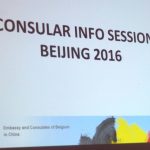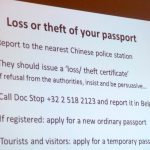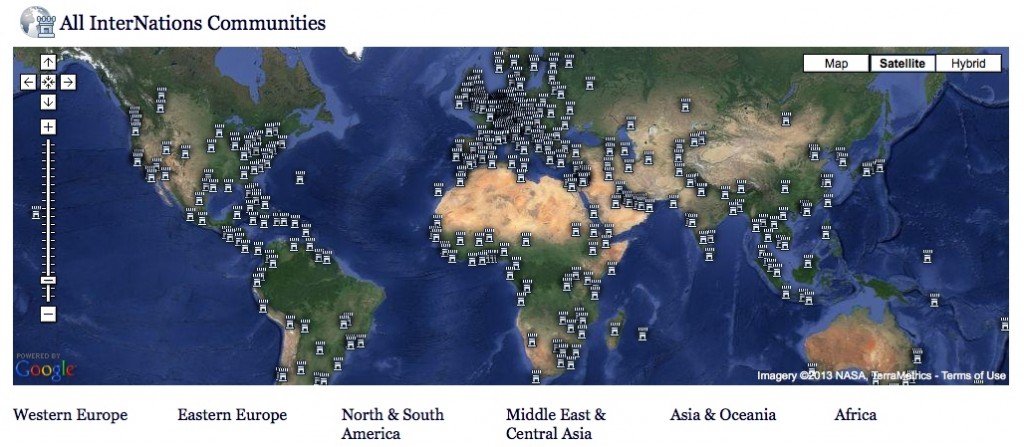Consular Info Session: great initiative
On 23 September the Belgian Embassy in Beijing held an information session in the Ambassador’s residence.
In every country one can face problems with visas, insurance, security and other. China is not an exception with its own issues.
The Consular Info Session was well attended by the Belgian community and many asked questions.
The Consul gave a clear and informative presentation of the main issues that can affect us all. The ambassador also intervened and also introduced the delegates from the “Belgians in Beijing” (“BiB”).
It is the first time (in 35 years!) I had the chance to join a similar meeting.
TIN and credit cards
I raised the issue of TIN: “Tax Identification Number”. Due to new laws in OECD, banks are becoming pretty strict on the tax situation of its clients. ING bank (Belgium) recently upset many of the Beijing clients as they were requesting our TIN, threatening to lodge complaints if we did not comply.
As a matter of fact, ING handled without understanding the situation of foreigners in China. While the Chinese government claims “everybody in China has a TIN”, in reality it does not apply to foreigners.
Chinese regulations mention:
The structure of TIN varies depending on the types of taxpayer. For entities, it consists of 15 characters (old TIN regime) or 18 characters (new TIN regime). For individuals, it consists of 18 characters. Taxpayer who registered with tax authority was issued a certificate of tax registration that contains its TIN. Under the new TIN regime, taxpayer who registers with industry & commerce authority will be issued a business licence that contains its “Credibility Code”, which is also its TIN. The TIN number of individual is shown on its identification card.
As we investigated, as for now the Beijing Tax Bureau uses simply the passport number as a TIN (not being in line with normal Chinese TIN for Chinese citizens).
The Beijing Tax authorities confirmed this in an official e-mail. One explanation is that foreigners do not have some kind of ID card in China. Long time ago we did have some kind of “ID booklet” that was later discontinued.
There are plans to reform the tax system and the work permits for foreigners, and to issue ID cards to foreign residents. At a later stage the foreigners could then also be issued a TIN according to Chinese tax standards.
As for me: we solved our problem as we got a brand-new TIN under our company.
Also to note: the Chinese Green Card number is can NOT be used for TIN and other purposes, it does not have 18 characters as the Chinese ID …
Belgian banks are now becoming difficult when sending out our credit cards. Some agencies only allow the cards to be picked up in person. The cards needs to be activated by SMS, usually too late when we get them in hand. The ATMs in Beijing do not have an “activation” service but the simple way is to withdraw a small amount, thus activating the card.




















